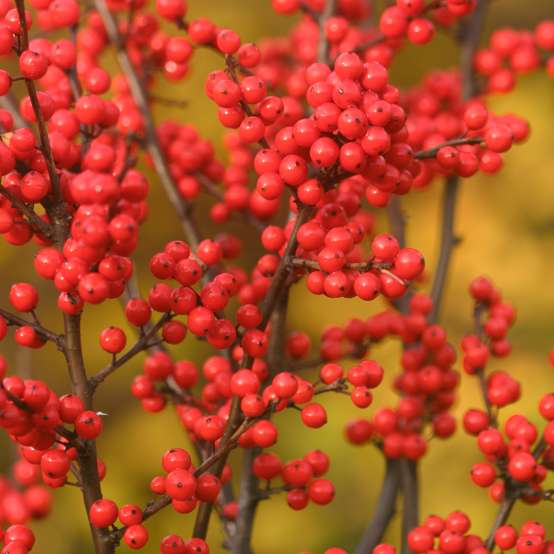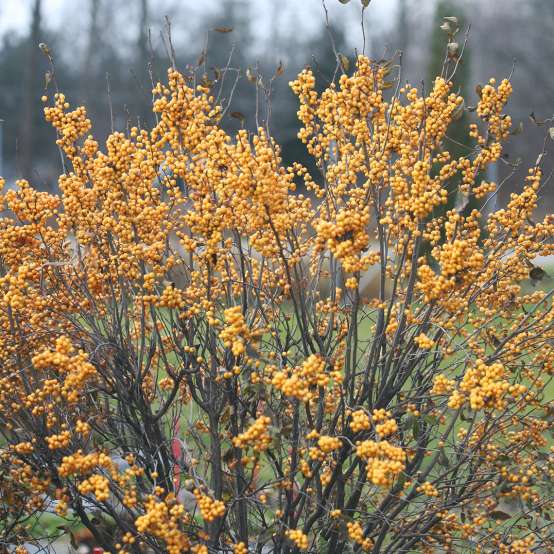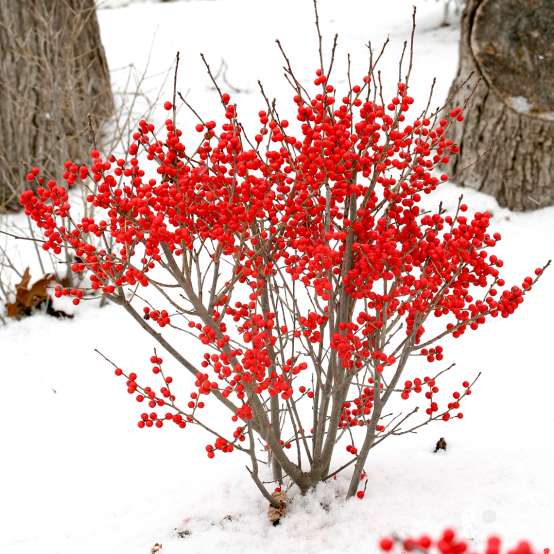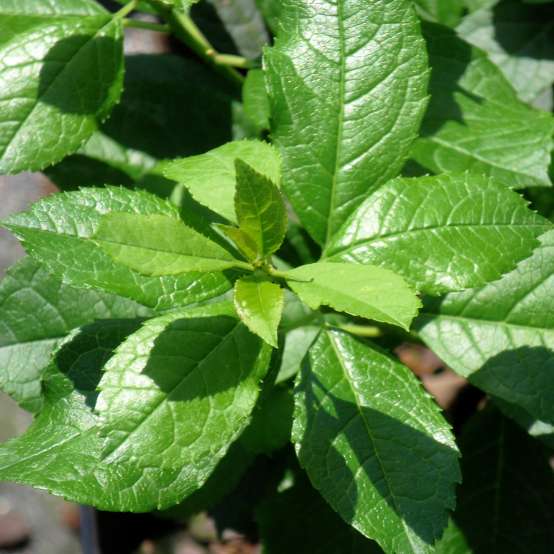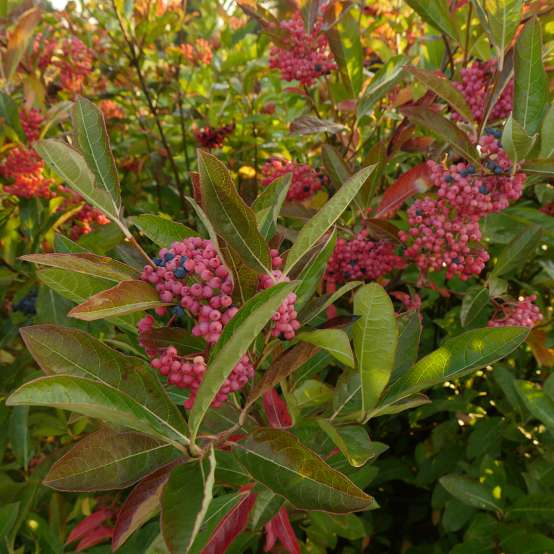Clicking the following controls will change the main image displayed above.
‘Afterglow’
Holly - Winterberry
Ilex verticillata
'Afterglow'

- Native to North America
- Unmatched winter beauty
- Deer resistant
- Description
Red-orange fruit in fall makes 'Afterglow' winterberry holly different than others. It must be planted near a male pollinator like 'Jim Dandy' to produce fruit. This variety has a compact rounded habit. Missouri Botanical Garden Plant of Merit.
- USDA Zone
- 3 - 9 (-40°F/-40°C)
- Exposure
- Full sun, Part sun
- Height
- 5 - 8'
- Width
- 5 - 8'
- Finish Time
- 1.5 seasons
- Type
- Deciduous
- Bloom Time
- Spring
- Flower Color
- White
- Foliage Color
- Green
General Care
Soil
Does best in moist (even very moist), slightly acidic soils, but can take average soils as well. Avoid high pH sites.Pruning
Winterberry holly blooms on old wood. However, pruning female varieties after blooming will remove any developing fruit, so pruning is not recommended except to remove entire branches in an effort to attain a specific form. Male varieties could be pruned after blooming, however, given the typically slow growth rate of winterberry hollies, pruning is not recommended for them either.Uses
Mass plantings; hedges; cutting gardens; wildlife gardens; natural areas.Growing Tips
One male plant will pollinate up to five females. Plant within about 50'/15.25m of one another to ensure pollination and good fruit set. Quite tolerant of shaded conditions; however, fruit set is best with at least 4 hours of sun each day.Features: Cut flower, Native, Winter interest, Attracts pollinators, Deer resistant, Clay soil
Filters: Botanical genus: Ilex, Common name: Holly - Winterberry, Retail program: Local Roots®, USDA Zone 3, USDA Zone 4, USDA Zone 5, USDA Zone 6, USDA Zone 7, USDA Zone 8, USDA Zone 9, Exposure: Full sun, Exposure: Part sun, Bloom time: Spring, White flowers, Green foliage
Features: Cut flower, Native, Winter interest, Attracts pollinators, Deer resistant, Clay soil
Filters: Botanical genus: Ilex, Common name: Holly - Winterberry, Retail program: Local Roots®, USDA Zone 3, USDA Zone 4, USDA Zone 5, USDA Zone 6, USDA Zone 7, USDA Zone 8, USDA Zone 9, Exposure: Full sun, Exposure: Part sun, Bloom time: Spring, White flowers, Green foliage

